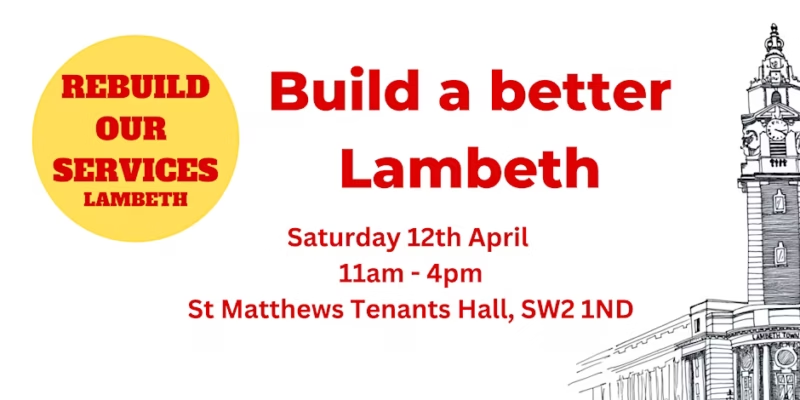Southampton council strike: a heroic struggle misled
The rolling strike by 2,400 Southampton council workers is now entering its 11th week. But despite Unite and Unison workers’ continued determination and sacrifice, there appears no sign of the Tory council relenting. Jeremy Dewar argues this is down to missed opportunities and poor leadership.

This Wednesday, 300 social care workers will join binmen and other council employees on strike. Their action started back in May after Southampton Council voted to impose £65 million of cuts over four years – a 28% reduction in the budget. As in other cities, this would involve massive job cuts – 250 this year but as many as 1,000, a quarter of the workforce over the following three.
But what made the Tory council different was that it also wanted to impose a pay cut of 5.4% on all its employees earning more than £17,500, on top of foregoing annual incremental pay rises and the nationally imposed pay freeze. The council, led by the detested Sir Royston Smith, claims that this pay cut will “save” 400 job cuts.
But this sleight of hand has fooled no one; like the £17,500 salary cut off point, it is simply a crude divide and rule manoeuvre. The “offer” involves a real pay cut of 10% this year and a further 5% in years to come, once inflation is taken into account. If the workers accepted the pay cut, far from guaranteeing jobs, it would signal their weakness to a rapacious management, who could come back for more job cuts over the broken backs of the unions.
More recently, Sir Royston has again tried to split the workforce by offering some (but not all) workers a one-off £1,400 payment. But this derisory offer was refused out of hand.
Selective action
The strike has shown exemplary unity between Unison and Unite members, many of whom have taken weeks of action. But the strikes have not been equally shared out. Although there have been occasions when all members have been out together, notably on 30 June, alongside teachers and civil servants, most of the time only a few hundred have been on strike simultaneously.
Traffic wardens, social workers, librarians, refuse collectors, street cleaners, building maintenance workers and the Itchen Bridge toll collectors have been among those most often called upon or volunteering to take action. As a result the council has not yet faced a total shutdown, which could force the Tory council to make serious concessions.
This is not to say that the workers have not made life difficult for the bosses. Refuse collectors in particular have not flinched in their fight, even when the local Tories tried to turn residents against them with misleading leaflets and the threat of scab labour.
But the truth is that selective action cannot win this dispute. It is understandable why workers accepted this strategy, especially as the initial votes for action were only narrowly won by 57% and 51% in Unite and Unison. But regional and branch officials have falsely and dangerously heralded their tactics as groundbreaking and superior to all-out indefinite strike. Ian Woodland, Unite’s regional officer said:
“It is not just bringing everyone out, which is the old-fashioned view, but bringing out key workers that will have an effect on the state.”
Unison’s branch secretary Mike Tucker expanded on this:
“The tactics we are developing here will be used elsewhere.”
And indeed Dave Prentis and Keith Sonnet of Unison have praised selective action, claiming it may be used in the autumn in the pensions dispute. From their point of view, it is easy to see why they admire it. There is no big set-piece confrontation with the employer or the state. The full-time officials stay in control. There are innumerable points at which the action could be slowed down or called off in favour of talks.
Shamefully, however, some self-proclaimed “Marxist” organisations, like the Socialist Party and Alliance for Workers Liberty, have also promoted selective and rolling strikes as a winning strategy. While the Socialist Workers Party has called for “escalation” they have stopped short of saying what that might mean or how it can be achieved.
But from the workers’ point of view, selective, rolling strike action has proved disastrous. Even if a short period of protest strikes was considered desirable at the beginning in order to prepare workers, who had only narrowly voted for action and most of whom had never been on strike before, for more confrontational action – its limitations soon became apparent.
Turning point
The key moment in the strike came a month ago. The workers dubbed it “Armageddon Day” – Monday 11 July – when all 4,600 council employees had to sign new contracts with worse pay and conditions or be “deemed to have made themselves redundant”. But rather than confront the threat of a lock out with the threat of an all-out strike, the union leaders meekly urged members to sign up in order to avoid being sacked – but to continue to support the slow-burning fuse of selective strike action.
This was a big mistake. But all is not lost.
The 11 rounds of selective strikes have thrown up a vanguard of the struggle – binmen and cleaners, social workers and librarians, toll collectors and maintenance workers. These sections have won respect from their fellow union members by their determination and preparedness to put themselves in the firing line.
They should now use the authority they have gained to call for a change of strategy, by calling on union leaders to convene a joint union meeting and prepare for an all-out indefinite strike. Yes, there will be those who say that this would divide the workforce, as some are not be prepared or able to lose more money by going all-out. But this argument cuts both ways: thousands of workers have already lost too much money on strike days to lose all now. The point is to put the argument now – not to lose more money on an inadequate strategy.
If necessary, those sections who realise this already should go over the heads of their branch and regional leaders and directly approach other sections, starting with the most receptive, to come out with them and force the pace. If they can do this, then the 2011 Southampton Council strike will not only be an example of courageous workers’ struggle, but a pointer for other workers who want to fight the cuts and win.






